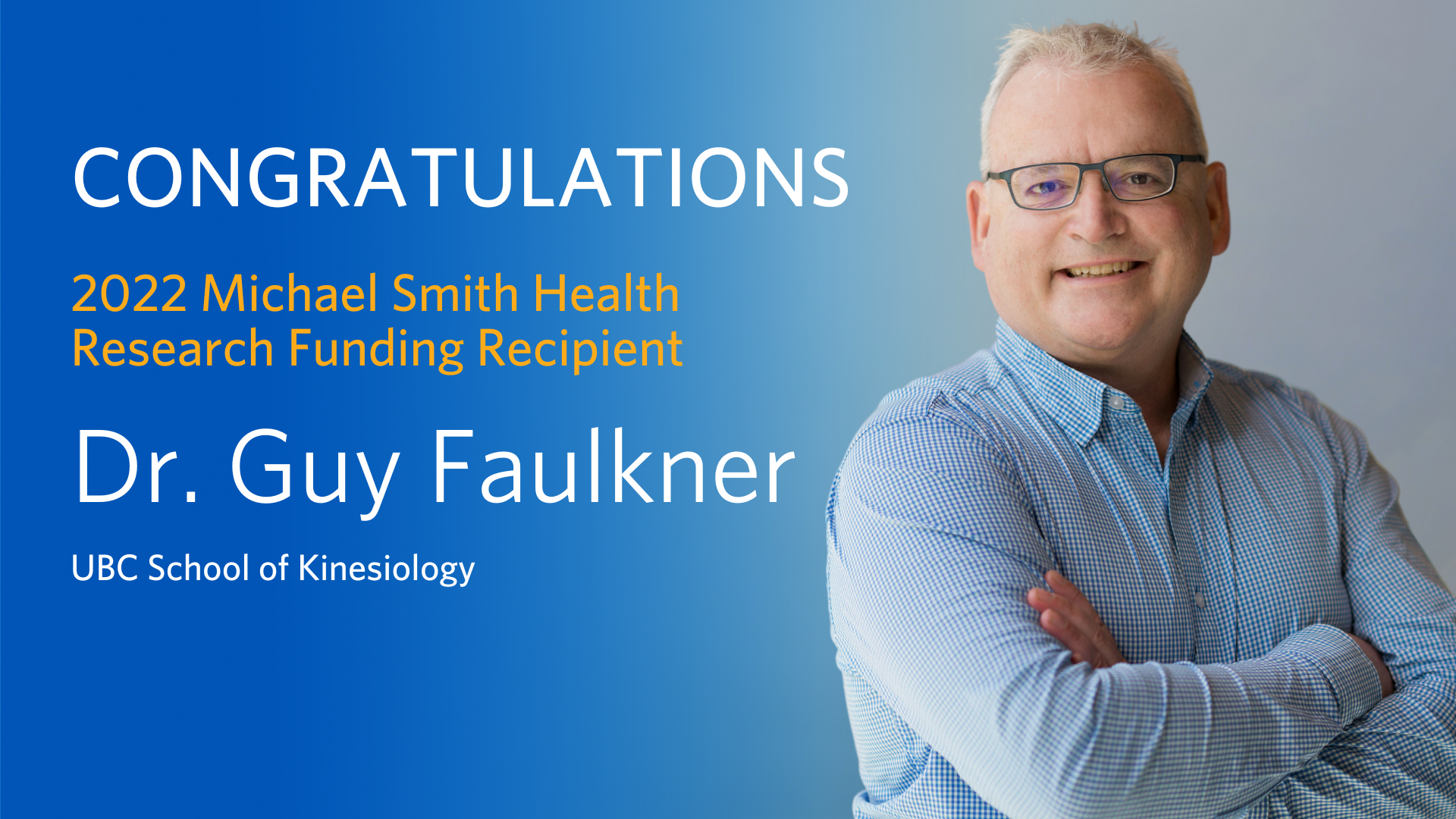October 17, 2022

Congratulations to the School of Kinesiology’s Dr. Guy Faulkner and his research team, who were recently awarded Michael Smith Health Research funding for their project Group Sense Making and Model Building for Mapping Systems for the Promotion of Population Physical Activity in British Columbia.
The COVID-19 pandemic and climate crises have emphasized the need for renewed and strengthened systems to promote population physical activity in BC. This need, coupled with calls for using complex systems methods, forms the basis for the proposed activities of Dr. Guy Faulkner and his team.
Complexity can be seen as the context where numerous interacting elements (i.e., people, entities, actions) in a system make it hard to see, describe, and assess what is happening in the whole. Complex systems methods are a way to gain clarity on complex problems and complex interventions by focusing on the patterns of what the system does or how it behaves.
Dr. Faulkner notes that he thinks of a complex system “as like a spider’s web in how everything is interconnected. A disruption at one point in the web has an impact that reaches all points of the web. A complex systems methods approach might try and map that web and look at what happens when there are disruptions or when connections are strengthened throughout.”
Led by Dr. Lori Baugh Littlejohns, a CIHR-IPPH & MSHR Health System Impact Fellow in the School of Kinesiology, the project will work with partners and stakeholders to identify leverage points for strengthening systems (or “connections in the web”) for population-level physical activity in BC. One example is thinking about how kids get to and from school—walking to school can be an important source of physical activity—but is this an issue for the education, transport, or public health sectors? Dr. Faulkner notes that arguably, it’s all of these sectors, but it is important for us to know whether their efforts are coordinated in supporting safe and active school travel.